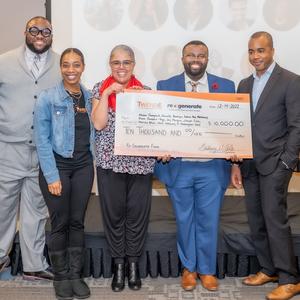
Companies and entrepreneurs created tech jobs in Greater Nashville at a faster pace than the state and nation in the last five years — and will continue to hold that edge in the years ahead.
Those are two of the takeaways from the newly released annual analysis of the region's tech scene from Middle Tennessee State University and the Greater Nashville Technology Council.
The report is a mile-marker of sorts in the tech council's race to double the region's tech workforce by 2025, to 92,000 people. The report's findings echo the prevailing message from similar studies: Nashville has a relatively small but rapidly growing tech sector, and that's before the full effect of major jobs announcements from companies such as Amazon.com Inc. (Nasdaq: AMZN), Oracle Corp. (NYSE: ORCL) and this week's news from global IT consulting firm Capgemini.
The report encompasses a 15-county area, comprised of the Nashville metropolitan statistical area as well as Montgomery County. (Some of the government-defined job categories included in the report entail non-tech roles as well as tech roles, it should be noted.)
The report counted 70,508 people in tech jobs across the region. It makes projections about growth into 2025, and details demographics and job postings for more than two dozen job categories.
Among its chief findings:
- Median compensation topped $71,100 in 2020. That's 76% higher than the median across all occupations in the region — but still an 18% discount from the national median for tech jobs.
- Pay for people in the "computer and information research scientist" category rose the fastest from 2019 to 2020. Their median jumped 28%, to $105,732.
- The occupation with the fastest job growth over the 2015-20 timespan was "data scientists and mathematical science occupations, all other." Their headcount grew 92%, to almost 950 people.
- The biggest occupation group, "business and financial operations analysts," grew at the second-fastest pace in that same time.
- Diversity and under-representation remain issues in tech (as with many other sectors). Women hold 40% of the region's tech jobs, though they are 51% of its population. Non-white workers hold 23% of tech jobs, though they are 29% of the region's population. When compared to the region's general working population, the tech workforce has a higher share of Asian workers but a lower share of Black and Hispanic or Latino workers.
“Relatively low cost of living paired with above-average wages and thousands of open positions has made Middle Tennessee’s tech sector very accessible, and workers of all backgrounds and from all over the country are taking notice," said Amy Harris, associate professor of information systems and analytics in MTSU's Jennings A. Jones College of Business.






